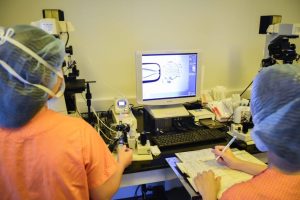Personalized Education Opportunities Available At A Private Middle School
Private middle schools are increasingly recognized for their ability to provide personalized education tailored to the unique needs, strengths, and interests of each student. Unlike traditional public school settings, where a one-size-fits-all approach often dominates, private institutions can implement individualized learning strategies that foster both academic excellence and personal growth.
Understanding Personalized Education
Personalized education focuses on adapting teaching methods, curricula, and learning experiences to meet each student’s needs. At a private middle school, this approach ensures that students not only master core subjects but also develop critical thinking, creativity, and a lifelong love of learning. The goal is to nurture well-rounded individuals prepared for high school and beyond.
Key Benefits of Personalized Learning
- Tailored Instruction: Teachers adjust lessons based on each student’s learning style, pace, and interests.
- Enhanced Engagement: Students participate in projects and discussions that resonate with their personal goals.
- Skill Development: Personalized programs strengthen academic skills alongside social, emotional, and leadership abilities.
- Improved Confidence: One-on-one support helps students overcome challenges and gain self-assurance in their abilities.
Academic Flexibility and Individualized Support
Private middle schools often provide a smaller student-to-teacher ratio, allowing for closer attention and customized support. Teachers can identify areas where a student excels and where extra guidance is needed, ensuring a balanced academic experience. Families choose Rosarian Academy Palm Beach for its commitment to faith-based education and student success.
- Customized Curriculum Plans: Programs can be adjusted to challenge advanced learners while supporting those who need additional reinforcement.
- Enrichment Opportunities: Students may explore electives such as advanced mathematics, creative writing, coding, or foreign languages tailored to their interests.
- Learning Assessments: Regular evaluations help track progress and refine teaching strategies for optimal outcomes.

Integration of Technology in Personalized Learning
Modern private middle schools leverage technology to further personalize education. Digital tools enable adaptive learning platforms, interactive content, and real-time feedback, making it easier to meet each student’s individual learning requirements.
- Adaptive Learning Platforms: Systems adjust difficulty levels based on student performance.
- Digital Portfolios: Students track their growth over time, reflecting on achievements and setting new goals.
- Collaborative Tools: Online platforms encourage teamwork and communication skills while allowing for individualized learning paths.
Holistic Development Beyond Academics
Personalized education at private middle schools extends beyond academics. Students are encouraged to pursue their passions through arts, athletics, and extracurricular activities, fostering well-rounded development.
- Mentorship Programs: Students benefit from guidance in academic, social, and emotional development.
- Clubs and Societies: Opportunities to explore leadership, community service, and special interests.
- Social-Emotional Learning: Programs help students develop resilience, empathy, and interpersonal skills.
Private middle schools provide a unique opportunity for personalized education that caters to the individual needs of each student. Through tailored instruction, academic flexibility, advanced technology, and holistic development, students gain not only academic knowledge but also confidence, creativity, and a strong foundation for future success. Families seeking an education that recognizes and nurtures each child’s potential will find private middle schools to be an ideal environment for growth and achievement.







